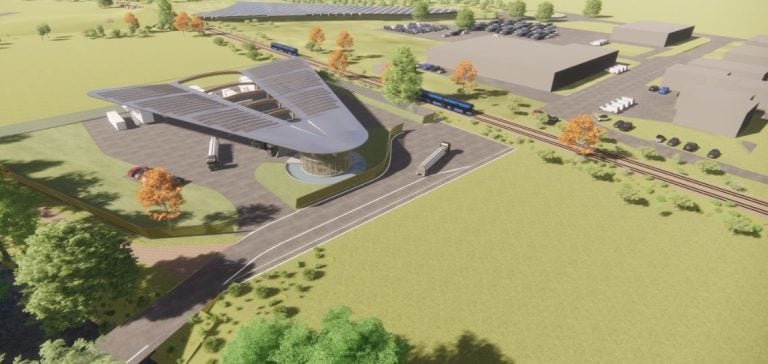Green hydrogen production is emerging as a central element in the energy transition, responding to the growing need for sustainable, decarbonized solutions.
Infener, a major player in this field, is joining forces with the town of Gengenbach to develop a green hydrogen production hub with a capacity of 20 MW.
This ambitious project aims to produce up to 2,000 tonnes of green hydrogen per year, providing a decentralized, cost-effective and carbon-neutral energy source for the Ortenau district.
A structuring project for the region
The hub will be located in the “Kinzigpark I” industrial zone, and is currently in the conceptual phase.
The realization of this project will depend on the outcome of this planning phase, as well as on the conclusion of purchase agreements and the necessary investment decisions.
The support of the mayor, municipal departments and the regional economic development agency is crucial to the implementation of this initiative.
Thorsten Erny, Mayor of Gengenbach, underlines the importance of this project, saying:
“Green hydrogen is not only essential to the energy transition, but is also a significant growth factor for our regional economy and industry.”
Infener’s initiative is part of a wider drive to strengthen the region’s energy autonomy.
By producing hydrogen from water electrolysis, the hub relies on renewable energy sources, thus contributing to local energy security.
This decentralized model of hydrogen production could also serve as a catalyst for other similar projects in the region, promoting a circular economy.
Strategic partnerships for a sustainable ecosystem
Joel Vogl, CEO and co-founder of Infener, highlights the potential for collaboration with regional partners:
“Thanks to the high production capacity, we see great potential to attract regional partners who can further process the hydrogen and by-products produced.”
Such collaborations are key to creating a sustainable local ecosystem, strengthening not only the region, but the European economy as a whole.
The supply of green hydrogen to business and industry is crucial to the future viability of industrial sites.
Tom Gißler, Technical Director of Gengenbach Municipal Services, emphasizes that
“decentralized hydrogen supply is a key step towards the future of our city’s energy supply.”
The project could also play a significant role in the decarbonization of local logistics and industrial companies, helping to achieve climate targets.
A commitment to energy self-sufficiency
Dominik Fehringer, Managing Director of the regional economic development agency nectanet, expresses his support, saying,
“The Black Forest power region aspires to energy self-sufficiency, and Gengenbach and Infener are setting an important precedent with this project.”
This type of initiative is in line with the German government’s national hydrogen strategy, which aims to establish ten gigawatts of domestic electrolysis capacity by 2030.
With this project, Infener marks a further step in the expansion of the green hydrogen market.
The company recently announced the start of construction of further hubs in Villingen-Schwenningen and Neumünster, reinforcing its leading role in green hydrogen production in Europe.
By establishing decentralized hubs, Infener is making a significant contribution to the implementation of the hydrogen strategy, while supporting local value creation.
Green hydrogen projects such as Gengenbach illustrate the growing importance of hydrogen in the European energy landscape.
By promoting decentralized solutions and establishing strategic partnerships, these initiatives are paving the way for a successful energy transition, while responding to contemporary economic and environmental challenges.






















